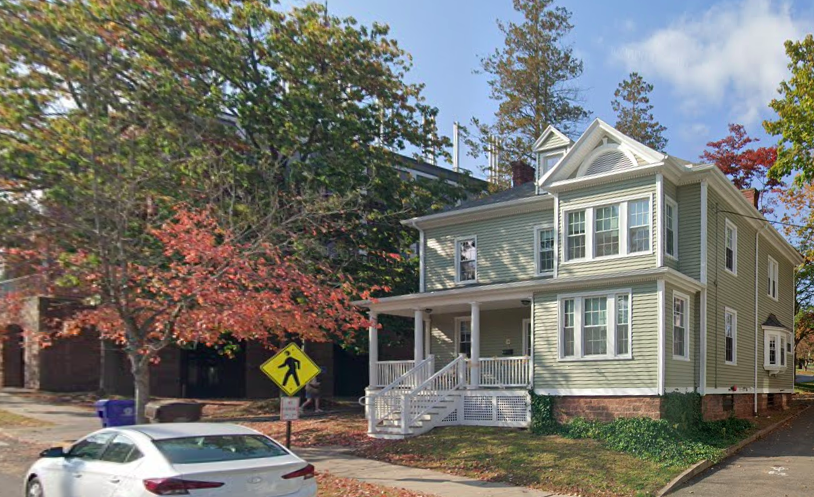
c/o wesleyan.edu
The housing selection process is universally stressful, but students placed in program housing through random lottery face extra pressure. Typically, students apply to live in program houses centering on an identity or common interest such as the outdoors (Outhouse), dance (Movement House), or the LGBTQ+ community (Open House). However, some students, dubbed “boarders,” are placed into a given program house without applying, meaning they deal with the added layer of entering a space where everyone has a common interest, except them.
By the end of the program house application process, there are often remaining rooms that have not been filled by applicants. These rooms become available spaces in the lottery system known as the general room selection process; as a result, students are sometimes placed into program housing despite not participating in the application process.
Assistant Director of Residential Life Kieran Duffy weighed in on the process of assigning students to empty program house rooms from an administrative angle. He explained that students often adjust to their living situations with time.
“The reaction to these assignments can vary and we have seen some differences in student’s initial reaction to the assignment and to their reaction to the experience once living there–sometimes students find that the community is a positive experience and are happy they were assigned there after living there,” Duffy wrote in an email to The Argus.
There are many benefits to living in a program house, even if students don’t identify with their house’s particular theme or identity group. For instance, program house boarders reported gravitating toward various amenities, including accessible kitchens as an area to cook and build community; balconies for extra space; and even fireplaces. The common rooms in program houses are typically more private, intimate spaces, further providing a greater sense of community and belonging that may be difficult for residence halls to replicate, given the lack of common spaces for a higher number of student residents.
Despite the benefits of the houses themselves, boarders shared concerns about fitting into the community aspect of the houses when they are not from the same cultural background or religious group as the house’s primary residents.
“I don’t want to intrude on the community’s space,” Maddy Fay ’24, who lives in the Bayit (the Jewish program house), said. “The house hasn’t necessarily given me a sense of community, because I’m not Jewish and I’m the only person on the first floor.”
According to Duffy, the community’s impact on the boarder sometimes depends on the ratio of boarders to full program house residents, and students who enjoy their time as a boarder in a given program house often reapply after forming connections with the community. However, Duffy said that the potential for community building usually rests in the hands of the boarders themselves.
“It can create a less cohesive community if the ‘boarder’ does not want to engage at all with the mission/community of the program house,” Duffy wrote.
Fay emphasized that the house has been very welcoming, even though she is not Jewish. Despite being a boarder, Fay said she attended the Wesleyan Jewish Community’s weekly Shabbat and has met several friends while living in the house. Residential Life seems to see this as the ideal outcome of the program housing boarder model.
“Generally speaking, I think the impact on the individual student (‘boarder’) is largely positive as it provides a group of students who are already inclined to form a community, with which they can participate if they choose,” Duffy wrote.
However, not every student reported success in finding community with their fellow program house residents. Echo Shen ’24, who currently lives in Light House, the Christian program house, shared her experience.
“[Light House doesn’t] really help me that much,” Shen said. “It’s not bad, but it doesn’t necessarily support me in finding a community.”
However, Shen did share that she finds the Christian community to be welcoming and understanding. She is among many students who did not apply to live in Light House but ended up there due to the housing lottery.
“I have to explain that I live in Light House but I’m not actually Christian,” Shen said. “Half of the people in our house aren’t Christian.”
Shen has attended Bible Study at Light House, and appreciates that the program house feels like a home rather than a dorm. She shared her advice for other students who might find themselves in a similar situation with respect to program housing.
“Give it a shot,” Shen said. “Try it out. I feel like it’s all about meeting people. I do understand how concerning it can be in the beginning.”
Fay expressed similar sentiments, urging other new boarders to give their living situation a fair chance.
“It does seem scary, and you probably will feel awkward, but for the most part everyone is so welcoming and willing to share their community with you,” Fay said. “Going in with an open mind is definitely a good idea.”
Echo Shen ’24 is a Layout Editor at The Argus.
Katarina Grealish can be reached at kgrealish@wesleyan.edu.
Shelby Gadaleta can be reached at sgadaleta@wesleyan.edu.
Comments are closed